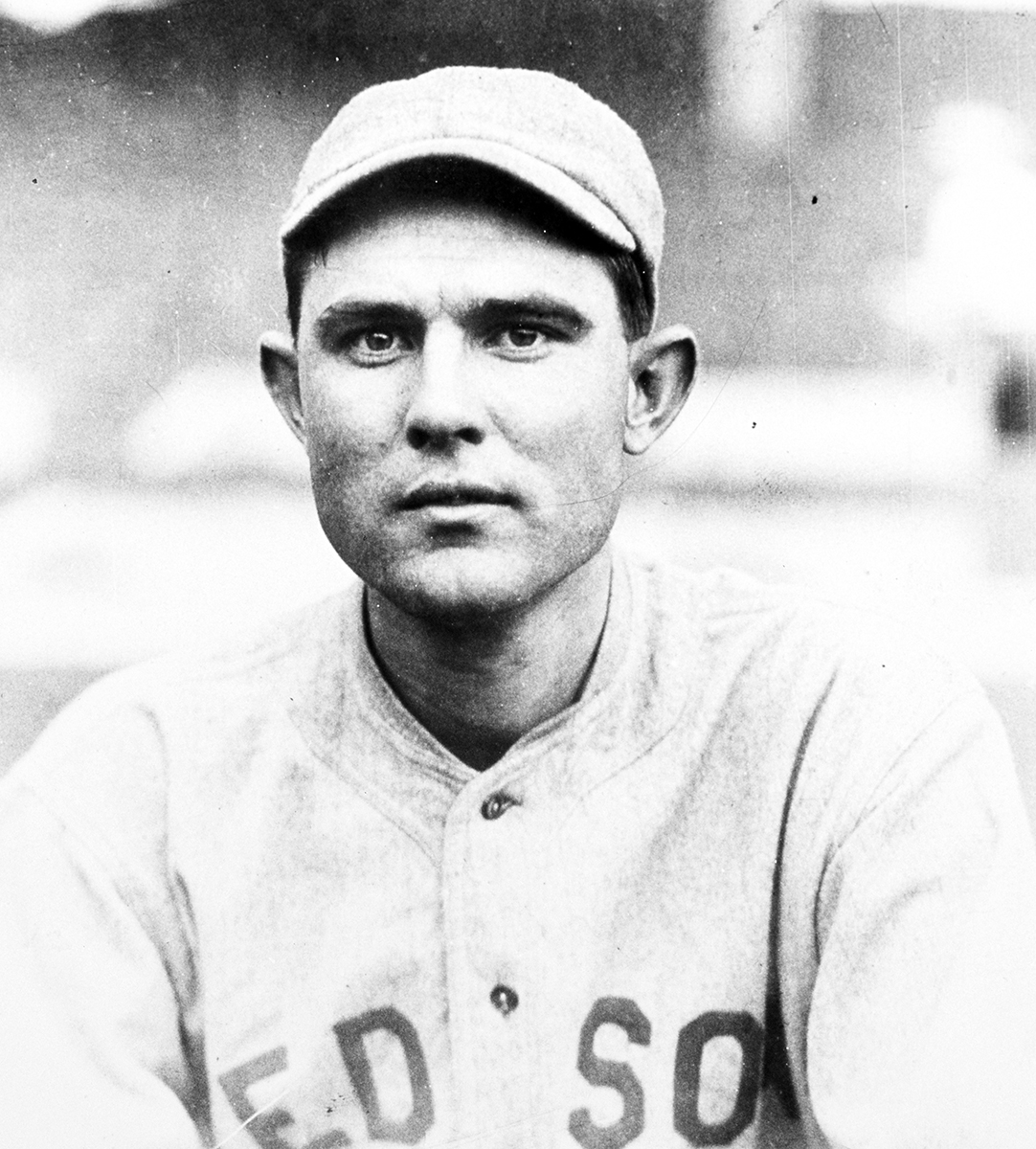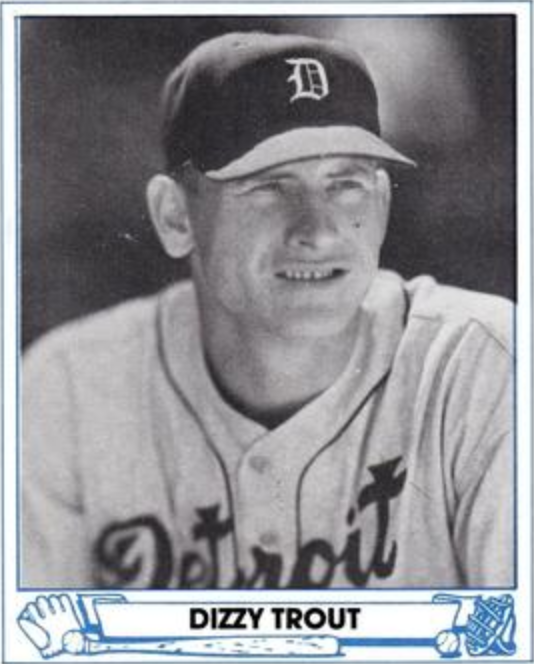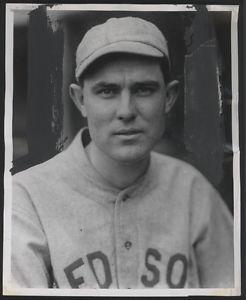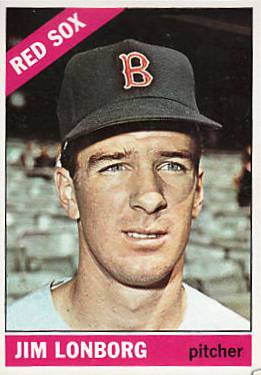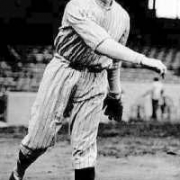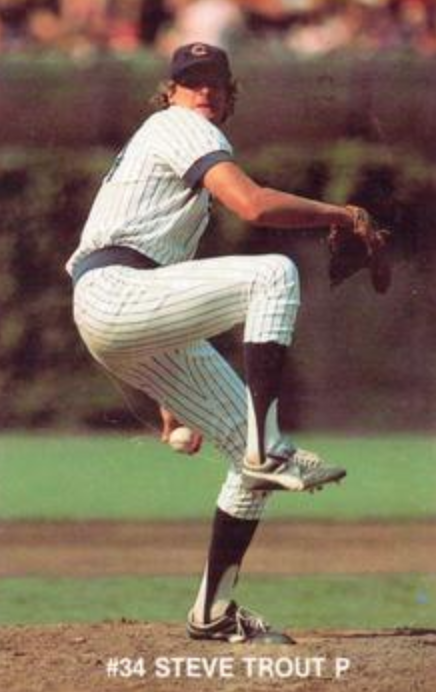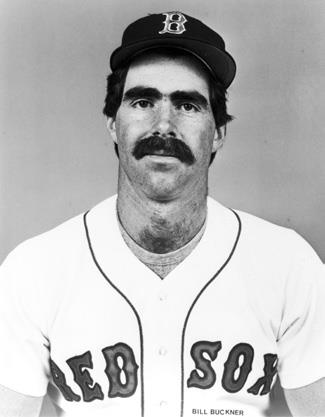October 12, 1914: Braves win Game Three in 12 innings
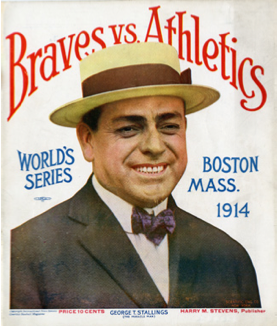 In the second consecutive thrilling contest, Philadelphia played by far its best match in Game Three and even took a two-run lead into the bottom of the tenth inning thanks to some daring baserunning by Eddie Murphy and a shocking mental error by Johnny Evers, “the player who became famous for discovering that Fred Merkle didn’t touch second.”1
In the second consecutive thrilling contest, Philadelphia played by far its best match in Game Three and even took a two-run lead into the bottom of the tenth inning thanks to some daring baserunning by Eddie Murphy and a shocking mental error by Johnny Evers, “the player who became famous for discovering that Fred Merkle didn’t touch second.”1
But the booming bats of Hank Gowdy and a determined Evers brought Boston even in the tenth and, with darkness falling in the bottom of the 12th, the Braves bounced back to win on another Gowdy smash, a bunt, and a throwing error by hard-luck loser Bullet Joe Bush.
The dramatic finish seemed to clinch the Series for Boston and caused the press corps to reach for historic hyperbole: “Boston today threw down the statue of Hank Adams and set up that of Hank Gowdy, tossed the statue of Johnny Adams into the bay and set up one of Johnny Evers, and went wild. Nothing can persuade them that after triumphing [in Game Three] anything will stop them.”2
Eerily, Game Three began as Game One had, with a double by Eddie Murphy, a sacrifice by Rube Oldring on which the Braves made a “masterly”3 play, and a sacrifice fly by Eddie Collins. Unlike the opener, the Athletics took the lead this time, and for good measure Collins reached first on his fly ball when “Joe Connolly, good dependable Joey, made a miserable error.”4
Again, however, Philadelphia failed to capitalize more fully due to a baserunning blunder after Collins stole second base and Stuffy McInnis walked. Pitcher Lefty Tyler picked Collins off second. “Collins was playing too far away from second and Tyler’s throw to Evers caught him sliding back to the bag,” the Philadelphia Bulletin wrote.5
“This [was] the second time Collins has been caught in the series, a fault practically unknown to him in the American League campaign,” said the Philadelphia Inquirer.6
Boston tied the score in the bottom of the second on a Gowdy double, the first of his three extra-base hits off of Bush, which plated Rabbit Maranville, who had singled and stolen second base thanks to “Wally Schang’s miserable throwing.”7
Bush’s own shortstop criticized the pitcher after the game for going after Gowdy in this key spot: “That hit by Gowdy’s … was also a slip for Bush,” said Jack Barry. “With Maranville on second, two out and the pitcher next up, the best play was for Bush to feed bad ones to Gowdy and take a chance on walking him.”8
The Athletics regained the lead in the top of the fourth inning with a two-out rally ignited when McInnis doubled to left. Going the same way, Jimmy Walsh “hit a bounding single into left and Connolly, still shaken up [by hitting the stand on the McInnis double], juggled the ball long enough to let McInnis score.”9
The Braves tied the score immediately although Boston would have taken the lead if Bush had not started the inning with a key defensive play, ironic given the way the game would conclude. Leading off, “Possum Whitted hit a fierce low grounder … which Bush deflected just enough to allow Collins to make a wonderful stop and throw out at first.”10
But a two-out single by Maranville that fell in front of A’s center fielder Jimmy Walsh drove in Butch Schmidt, who had singled and gone to second on a grounder by Charlie Deal. Walsh was playing only because “Amos Strunk, crack centerfielder of the Athletics, is out … for the rest of the world’s series with an abscess on his hand…. Strunk would have been waiting for Maranville’s short fly which Walsh barely touched,” the Philadelphia Bulletin wrote ruefully.11
The teams played scoreless ball until the tenth inning, thanks in part to defensive gems by Schmidt, Tyler, and Maranville.
Braves manager George Stallings, in his daily column, called out “Big Schmidt’s play on Bush in the eighth inning when he led off with what looked like a sure two or three-base hit. Schmidt’s wonderful stop and Tyler’s lightening like work in covering the base were the greatest plays of the game.”12
As with his game-ending double play in the ninth inning of Game Two, “Maranville robbed Collins of a hit in the ninth when he raced over toward second, scooped up a low sizzler and nabbed the fleet Collins by inches at first.”13
The Athletics appeared to have won the game in the top of the tenth inning when Home Run Baker singled to second with two outs and the bases full to score Wally Schang. Murphy, who was on second, also scored because “Evers forgot the bases were full … began patting himself on the chest, and kept it up so long that Murphy finally took a chance to steal home, and … he ran home without Evers even looking up at him or making an effort to throw the ball.”14
Philadelphia still had two on with two out. In a World Series that featured little strong defensive outfield play, Possum Whitted made a key one on a fly ball by McInnis at a clutch time. Eddie Collins noted, “It looked like we would get a couple more when McInnis lined sharply to left centre, but Whitted made a good catch.”15
But Boston did not concede defeat even when they were confronted by a disheartening deficit. Gowdy opened the bottom of the tenth with “one of those fine, long, low drives that delight the eye of the golfer,”16 a “psychological swat that put the necessary courage into his teammates”17 to complete the comeback. (It bounced in center field and went into the stands, a hit that counted for four bases in those days.) Herbie Moran walked with one out and Evers had his chance for redemption. He “drove a fierce low bounder right where Collins should have been playing for him with a curve being pitched.”18 A single, the hit sent Moran to third. Connolly’s sacrifice fly knotted the game again, at 4-4.
Boston won the game in the bottom of the 12th inning. Gowdy doubled and Leslie Mann ran for him. Larry Gilbert, making his only appearance of the Series, batted for James and received an intentional walk to set up a force play. Herbie Moran bunted back to Bush, who “grabbed the ball as if it were a ball of fire, and hurled it into the darkness. It may have been within five feet of Baker; it may have been within ten feet of him, but it might have well been thrown into the grandstand for all the good that it did.”19
Given their disparity in experience, Bush came under much more blame for his miscue than did Mack for leaving him in the game. According to a Philadelphia paper, Bush threw 140 pitches in nine innings and 181 overall in a herculean effort.20 The Braves had clearly sought to drive up Bush’s pitch count from the beginning of the game. In the bottom of the first, “Moran pulled a ‘Roy Thomas’ by fouling off four straight balls, all good ones, before lifting to Mack’s second base guardian.”21
With his deep bullpen and the darkness that would have prohibited additional play, Mack could have easily relieved Bush at different junctures22 but chose not to do so and suffered again from his passivity, although the dimming light did make Bush’s “speed more effective every minute.”23
Boston proved faster than a speeding Bullet in taking Game Three and setting the stage for the possible first sweep in the history of the World Series.
This article is included in “The Miracle Braves of 1914: Boston’s Original Worst-to-First World Series Champions” (SABR, 2014), edited by Bill Nowlin.
Notes
1 “Bush’s Wild Throw to Baker Cost Athletics Third Game,” Philadelphia Bulletin, October 13, 1914, 10.
2 Hugh S. Fullerton, “Hub about Ready to Raise Statue to Hank Gowdy,” Boston Traveler, October 13, 1914, 6.
3 “Notes of the Braves’ Game,” Boston Traveler, October 13, 1914, 7.
4 “Braves’ Game Fight Wins 5-4 Victory after 12 Innings,” Boston Daily Advertiser, October 13, 1914, 3.
5 “Detail of Each Ball in To-Day’s Battle,” Philadelphia Bulletin, October 12, 1914, 1.
6 “Gowdy the Rock Mack Tripped on,” Philadelphia Inquirer, October 13, 1914, 10. Collins made no excuses in his column, writing, “I am deserving of severe criticism for getting pinched off second, as it helped the Braves’ pitcher out of a tight hole.” Eddie Collins, “Eddie Collins Says Mackmen ‘in Last Ditch,’” [Philadelphia] Evening Ledger, October 13, 1914, 2.
7 T.H. Murnane, “Thrice in Lead, Athletics Lose Finally to Braves in 12th, 4-5,” Boston Daily Globe, October 13, 1914, 6.
8 Jack Barry, “Inability to Hit in Pinches Caused Athletics’ Defeat,” Philadelphia Bulletin, October 13, 1914, 10. Connie Mack disagreed: “Our pitchers didn’t pitch right to Gowdy. He isn’t the hitter the World’s Series statistics show. The pitchers were told what to pitch, but didn’t do it.” “Silent Handful Greets Mackmen,” Philadelphia Bulletin, October 14, 1914, 1.
9 R.E. McMillin, “Braves Victorious in Twelve Innings,” Boston Journal, October 13, 1914, 8.
10 “Notes of the Braves’ Game,” Boston Traveler, October 13, 1914, 7.
11 “Strunk out of the Series,” Philadelphia Bulletin, October 13, 1914, 10.
12 George T. Stallings, “Braves Gamest Club in History,” Boston Daily Advertiser, October 13, 1914, 3.
13 “Notes of the Braves’ Game,” Boston Traveler, October 13, 1914, 7.
14 “Bush’s Wild Throw to Baker Cost Athletics Third Game,” Philadelphia Bulletin, October 13, 1914, 10. Of Evers’s lapse, Maranville wrote later, “I yelled at Evers, who kept patting the ball in his glove. I yelled, ‘Third, Johnny, third.’” This account just adds to the mystery of an odd play, as Maranville should have yelled home, where Murphy was going, rather than third, from where Murphy was coming. Walter “Rabbit” Maranville, Run, Rabbit, Run (Cleveland: Society for American Baseball Research, 1991), 33.
15 Eddie Collins, “Eddie Collins Says Mackmen ‘in Last Ditch,’” [Philadelphia] Evening Ledger, October 13, 1914, 2.
16 “Braves’ Game Fight Wins 5-4 Victory after 12 Innings,” Boston Daily Advertiser, October 13, 1914, 1.
17 “Braves Capture White Elephants as Night Falls,” Philadelphia Inquirer, October 13, 1914, 1. “Maranville was acting like a crazy man on the coaching lines.” John J. Hallahan, “Detail Play of the Third Straight Game Captured by Braves,” Boston Herald, October 13, 1914, 7.
18 Hugh S. Fullerton, “Bracing Ball Played by Both Teams” [Philadelphia] Evening Ledger, October 13, 1914, 2.
19 “Bush’s Wild Throw to Baker Cost Athletics Third Game,” Philadelphia Bulletin, October 13, 1914, 10. Barry, presumably close to the play from his shortstop position, said the throw “just grazed Baker’s glove.” Jack Barry, “Inability to Hit in Pinches Caused Athletics’ Defeat,” Philadelphia Bulletin, October 13, 1914, 10. A scout writing under a pseudonym claimed Bush “slipped and fell, throwing the ball into left field.” “A’s Chance to Win Is Slim One; Gowdy Is the Hero, Says ‘X,’” Boston Traveler, October 13, 1914, 6.
20 Even a single outlet had disparate views of how well Bush had done. “Bush … acquitted himself so well that with a less aggressive and resourceful team than the Braves, he would have won.” “Boston World Champions,” Sporting Life, October 17, 1914, 2. “Bush was unequal to winning his own game; ‘groove’ balls to Gowdy, Evers and Connolly resulting in a homer, single and sacrifice fly which netted two runs and tied the game.” Francis C. Richter, “The World’s Series Sweep,” Sporting Life, October 24, 1914, 2.
21 Bush threw 27 pitches to just four batters in the first inning, “the largest inning of the series for balls pitched.” “Gowdy the Rock Mack Tripped on,” Philadelphia Inquirer, October 13, 1914, 10.
22 In the third inning, “Pennock was warming up with great speed.” John J. Hallahan, “Detail Play of the Third Straight Game Captured by Braves,” Boston Herald, October 13, 1914, 7.
23 Jim Nasium, “Mackmen Buckle in Crucial Battle,” Philadelphia Inquirer, October 13, 1914, 10.
Additional Stats
Boston Braves 5
Philadelphia A’s 4
12 innings
WS, Game 3
Fenway Park
Boston, MA
Box Score + PBP:
Corrections? Additions?
If you can help us improve this game story, contact us.


